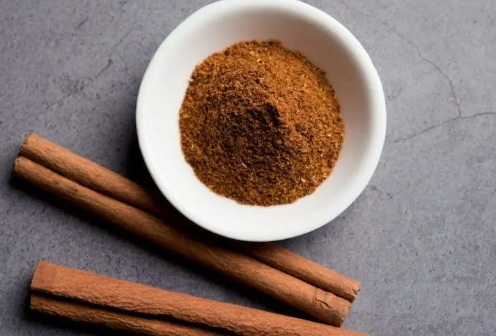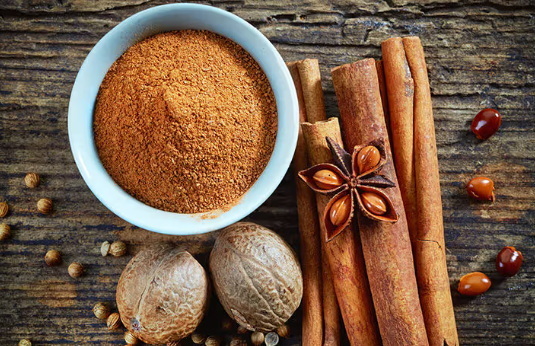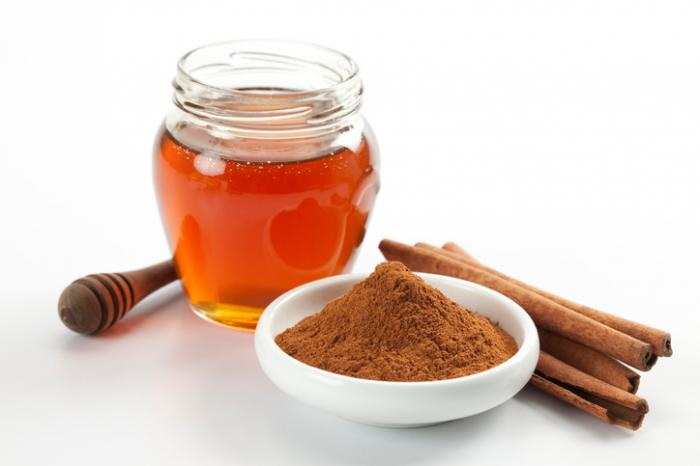Content Menu
● Introduction to Cinnamon and Diabetes
>> Cinnamon Types
● Research on Cinnamon Bark Extract and Diabetes
>> Positive Effects
>> Negative Findings
● Mechanisms Behind Cinnamon's Effects
● Safety Considerations
● Potential Interactions and Precautions
>> Interactions with Diabetes Medications
>> Dietary Considerations
● Lifestyle Modifications for Diabetes Management
● Future Research Directions
● Conclusion
● FAQ
>> 1. What are the main types of cinnamon, and which is safer for diabetes management?
>> 2. How does cinnamon bark extract affect blood sugar levels?
>> 3. What is the recommended dosage of cinnamon for diabetes management?
>> 4. Can cinnamon replace conventional diabetes medications?
>> 5. Are there any potential side effects of using cinnamon bark extract?
● Citations:
Cinnamon, a spice commonly used in cooking and baking, has been studied for its potential effects on blood sugar levels in diabetic patients. Specifically, cinnamon bark extract has garnered attention due to its purported ability to improve insulin sensitivity and reduce blood glucose levels. This article will delve into the current research on cinnamon bark extract and its impact on diabetes management.

Introduction to Cinnamon and Diabetes
Cinnamon is derived from the bark of the cinnamon tree (Cinnamomum verum or Cinnamomum cassia), with two main types being Ceylon and Cassia. It has been used for centuries not only as a flavoring agent but also for its medicinal properties. The interest in cinnamon's effects on diabetes stems from its potential to enhance insulin sensitivity and lower blood sugar levels.
Cinnamon Types
- Ceylon Cinnamon (True Cinnamon): Known for its lighter color and sweeter taste, Ceylon cinnamon is considered safer due to its lower coumarin content.
- Cassia Cinnamon (Chinese Cinnamon): More commonly available and less expensive, Cassia cinnamon contains higher levels of coumarin, which may be toxic in large doses.
Research on Cinnamon Bark Extract and Diabetes
Several studies have explored the effects of cinnamon on blood sugar levels in diabetic patients. While some research suggests that cinnamon may help lower fasting blood sugar and hemoglobin A1c levels, other studies have found no significant effects.
Positive Effects
A 2018 review noted that cinnamon could reduce hemoglobin A1c levels by 0.27% to 0.83% and fasting blood sugar levels by up to 52.2 mg per deciliter in people with type 2 diabetes. Another study found that consuming 1 g of cinnamon for 12 weeks resulted in a 17% reduction in fasting blood sugar levels.
Negative Findings
However, not all studies have shown positive results. A study involving 70 type 2 diabetes patients found that taking 1 g of cinnamon daily for 60 days did not significantly reduce blood glucose levels.
Mechanisms Behind Cinnamon's Effects
Cinnamon is believed to exert its effects through several mechanisms:
- Insulin Sensitivity: Cinnamon may increase insulin sensitivity, allowing glucose to enter cells more efficiently.
- Glycogen Synthase Activity: It may inhibit glycogen synthase activity, reducing glucose storage in the liver.
- Antioxidant Properties: Cinnamon contains antioxidants that can help reduce oxidative stress associated with diabetes.

Safety Considerations
While cinnamon is generally considered safe, high doses of Cassia cinnamon can be problematic due to its coumarin content. Ceylon cinnamon is safer for long-term use due to its lower coumarin levels.
Potential Interactions and Precautions
Cinnamon bark extract can interact with certain medications, such as blood thinners and diabetes medications. It is crucial to consult with a healthcare provider before adding cinnamon to your regimen, especially if you are taking other medications.
Interactions with Diabetes Medications
Cinnamon may enhance the effects of diabetes medications, potentially leading to hypoglycemia. Monitoring blood sugar levels closely is essential when using cinnamon alongside conventional diabetes treatments.
Dietary Considerations
Incorporating cinnamon into your diet can be beneficial, but it should be part of a balanced meal plan. Combining cinnamon with other natural ingredients known to affect blood sugar, such as turmeric and ginger, may enhance its effects.
Lifestyle Modifications for Diabetes Management
While cinnamon bark extract may offer benefits, it is essential to combine it with lifestyle modifications for effective diabetes management. These include:
- Dietary Changes: Focus on whole foods, fruits, vegetables, and whole grains.
- Physical Activity: Regular exercise can improve insulin sensitivity.
- Stress Management: Techniques like yoga and meditation can help manage stress, which is linked to blood sugar control.
Future Research Directions
Future studies should aim to clarify the optimal dosage and duration of cinnamon supplementation for diabetes management. Additionally, exploring the effects of cinnamon on different types of diabetes, such as type 1 and gestational diabetes, could provide valuable insights.
Conclusion
Cinnamon bark extract shows promise in managing blood sugar levels in diabetic patients, but the evidence is mixed and more research is needed to confirm its efficacy. It should not replace conventional diabetes treatments but can be considered as a complementary approach under medical supervision.

FAQ
1. What are the main types of cinnamon, and which is safer for diabetes management?
Cinnamon is primarily available in two types: Ceylon and Cassia. Ceylon cinnamon is safer due to its lower coumarin content, making it more suitable for long-term use in diabetes management.
2. How does cinnamon bark extract affect blood sugar levels?
Cinnamon bark extract may help lower blood sugar levels by increasing insulin sensitivity and reducing glycogen synthase activity. However, its effectiveness varies across studies.
3. What is the recommended dosage of cinnamon for diabetes management?
The recommended dosage varies, but typically ranges from 0.5 to 1 g per day for Cassia cinnamon. Ceylon cinnamon can be used in higher doses due to its lower coumarin content.
4. Can cinnamon replace conventional diabetes medications?
No, cinnamon should not be used as a replacement for conventional diabetes medications. It can be considered as a complementary approach under medical supervision.
5. Are there any potential side effects of using cinnamon bark extract?
High doses of Cassia cinnamon can be toxic due to its coumarin content. Ceylon cinnamon is generally safer but should still be used with caution and under medical guidance.
Citations:
[1] https://pmc.ncbi.nlm.nih.gov/articles/PMC3924990/
[2] https://www.youtube.com/watch?v=1kNVWuSA8_o
[3] https://www.medicalnewstoday.com/articles/317207
[4] https://nutritionfacts.org/video/update-on-cinnamon-for-blood-sugar-control/
[5] https://www.healthline.com/nutrition/cinnamon-and-diabetes
[6] https://www.youtube.com/watch?v=rtYkLoHEkm4
[7] https://www.mayoclinic.org/diseases-conditions/diabetes/expert-answers/diabetes/faq-20058472
[8] https://www.youtube.com/watch?v=BhZrco86qNs






























